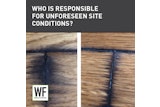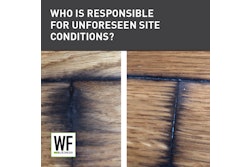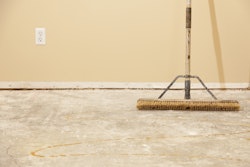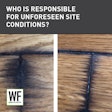
I recently received a call from a flooring contractor who was being sued. The plaintiff was a former customer who claimed the contractor incorrectly installed a new floor and had not followed the EPA lead paint rules. The plaintiff’s child was now allegedly ill and had elevated levels of lead paint in her blood. The contractor disputed the claims but asked whether he could be personally liable if it turned out he did not follow all of the rules. I asked if he had established and did his work through a business entity like a corporation or a limited liability company (LLC). It turned out he was operating as a sole proprietorship and had merely filed an assumed name (sometimes called a “doing business as” name or “d/b/a”). I had bad news for him: If found liable for any damages, then he would be personally responsible, and his personal assets would be at risk.
This example illustrates the importance of doing business through an entity. By forming a corporation or LLC and entering into contracts through an entity, business owners will almost never be personally liable for claims by customers or creditors. Some people have told me it is too much “hassle” to form an entity because of obtaining a separate tax identification number, opening a company bank account, and filing a separate business tax return. However, these administrative tasks are well worth the effort compared to being personally liable for every possible claim related to your business operations.
Further, if you will be the only owner, a single-owner LLC still has the liability shield of a business entity but can be treated as a “disregarded entity” by the IRS. This means the business owner may continue to file taxes as a sole proprietor by attaching a schedule about the business operations to the owner’s personal tax return.
Another key factor in avoiding personal liability is maintaining the appropriate insurance. For example, even if the business is conducted through an entity, many states impose personal liability on business owners for failure to maintain required workers compensation insurance. I once had a client who operated through an LLC and hired a few laborers. The client claimed they were independent contractors and so did not maintain any workers compensation insurance. One worker was seriously injured by a saw on a job site and hired an attorney to pursue a workers compensation claim against the LLC. The court found the injured worker was an employee of the LLC, and since the LLC had no insurance, under state law the LLC owner was personally liable for the entire workers compensation claim plus a 65% penalty for failure to maintain insurance. The owner eventually filed for personal bankruptcy.
To insulate themselves from personal liability, I recommend all contractors do business through an entity and cut no corners regarding insurance. As the old adage goes, “penny wise, pound foolish."

































